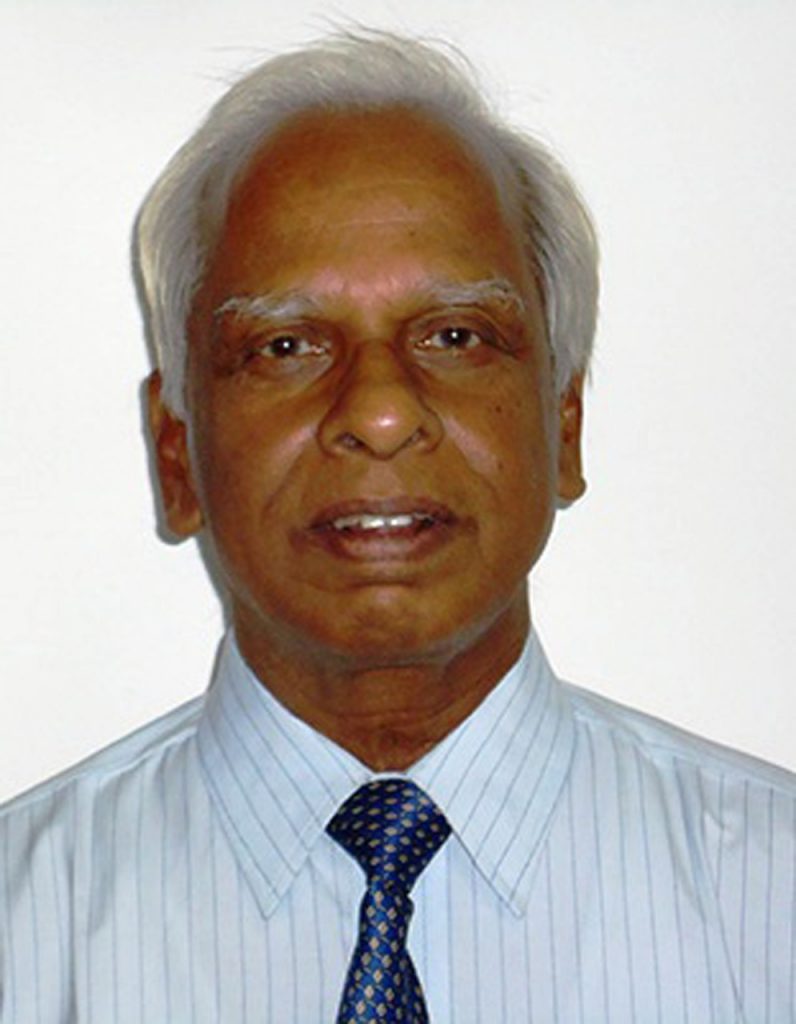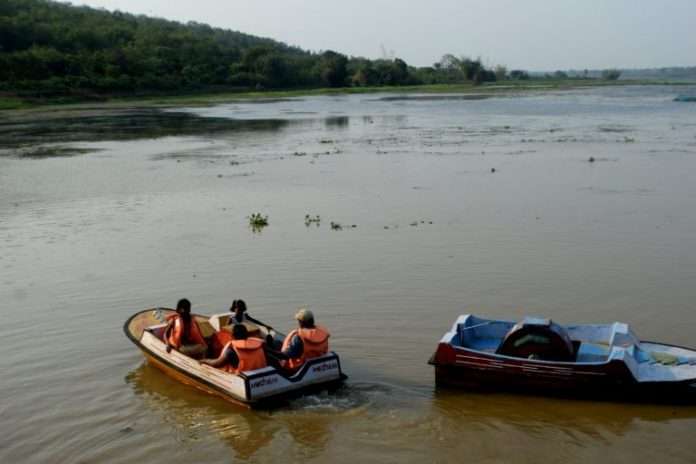(The beautiful Anshupa remained unknown)
Pujyaspada he lagos padapushkara (whereas) the small Pushkara became the object of worship), wrote Kabibara Radhanath Rai, the famous Odia poet, in his well-known poem “Chilika” (also spelt as “Chilka”). He continued in the same vein: kshudra shiprasrota bikshate jagate (the small stream Shipra became famous) / Mahanadi namarahila gupate ((whereas) the Mahanadi remained unknown). I heard these lines from my teacher of Odia literature while in High School. The poem was not prescribed for us – too long for that – he mentioned these memorable lines while teaching another poem on the lake Chilika. Commenting on these lines, our teacher said that the Mahanadi and the lake Anshupa were not known to those outside Odisha because the people of the other states had a strong stepmotherly attitude towards our state. What he did not tell us is that let alone outside the state, even in Odisha, lake Anshupa was far less known than Lake Chilika. At any age and at any stage, one generally tends to find the conspiracy angle to things interesting and persuasive. And the feeling of being a victim to others’ machinations can indeed be quite comforting.
I loved those lines for a very personal reason. They contained the names of the river and the lake to which I related emotionally. I come from the village Subarnapur on the bank of the Mahanadi and the lake Anshupa is just about a couple of kilometers away from my village, on the same side of the river, and the lake is connected with the river through a natural channel. I still recall how during the monsoon, when the river was in spate the lake would overflow, and for us, there was “water, water everywhere”.
About twenty years after I left High School, I had the opportunity to see the lake Pushkar and as I stood on the shore enjoying the expanse of the water, I remembered those lines of “Chilika”. I felt that Pushkar Lake was by no means as small as Radhanath Ray had suggested. It struck me as a beautiful lake like Anshupa but these were beautiful in different ways, I thought. Anshupa’s beauty was more natural, whereas human interventions had contributed to the charm of the lake Pushkar. By the way, I am not faulting Radhanath Ray for presenting a rather inaccurate picture of the lake Pushkar because in those lines he was drawing attention to Anshupa Lake, not Pushkar Lake. And exaggeration is a well-known literary strategy.
But Puskar Lake has what Anshupa does not. Puskar is a holy lake and it is believed to bring religious merit to those who take a dip in it on the day of Kartik Purnima. Close to it is the temple dedicated to the Creator god Brahma and this is the only temple on earth dedicated to him. “Padma Purana” contains the story of the creation of this holy lake.
Lake Anshupa has no story of a comparable nature. It occurs in no Purana, no mahatma. In “Sarala Mahabharata”, there is mention of the lake Bindusagara, a small lake in Bhubaneswar, near the Lingaraj Temple. Many, both in Odisha and outside, have heard of Indradyumna Sarovar of Puri, which, in terms of size, is almost like a pond. But these are sacred water bodies and have been mentioned in the Odia puranic literature.
As for Anshupa, there is no poem or story written on it by any of the well-known writers in Odia. Even Radhanath Ray, who expressed concern over the neglect of Anshupa, did not write anything on this lake. He wrote a masterpiece on the lake Chilika. The famous poet Pandit Godabarish Mishra’s “Kalijaai” is equally popular. If the poem “Rela Upare Chilika Darshana (watching Chilika from the train)” by Pandit Gopabandu Das, freedom fighter and educationist, shows us the benign face of this lake, Godabarish’s poem shows its violent face. At school, generations of students have read both the poems and as a result, as Chilika became part of the cultural memory of the Odias, the lake attained much visibility.
There is a nice little story in Dr. Kunjabihari Dash’s “Loka gala Sanchayana”, which, as the title says, is a collection of folk tales. Anshupa figures here. Once upon a time, Anshupa was in the princely state of Tigiria (now, it is in the sub-division of Athagarh in the district of Cuttak). The king of the princely state of Banki, on the other side of the river Mahanadi, annexed this lake. The king of Tigiria was young and was of a rather cowardly disposition. Madanamohana, which was his name, was unwilling to fight with the king of Banki for what he called “a useless water body”. Bloodshed would be entirely unjustified for such a small, damp, and uninhabited lake (Santa santia apantarapata), he said. This attitude of the young king shocked the former king, DhanurdharaChampatisingh. The integrity of the kingdom must not be compromised, he said and with some fighters, as old as him, he proceeded to Anshupa to fight the soldiers of Banki. They lost and Dhanurdhara was killed in the battle.
The point of telling this story is this: the rare mention that Anshupa got in our lokakatha (folk literature) is unflattering to the lake. Now, do not say that the king of Banki annexed Anshupa for the sake of its beauty. He did it for the villages near the lake. The area was not really uninhabited. The king of Tigiria said so to justify his inaction (or his cowardice?).
Going by my childhood memory, I can say with some confidence that the inhabitants of Subarnapur, the most populous, the most educated, and the most prosperous village in that area, and also the closest to the lake, related far more to the river Mahanadi than to the lake Anshupa. They bathed in the river, collected drinking water from it, performed rituals on the bank, and had occasional boating in the river. Children played on the beach and some elders sometimes slept there at night during the summer, among others. In contrast, no one went to Anshupa for anything of the sort. It had virtually no function in the villagers’ day-to-day life. Our fishermen caught fish in the river Mahanadi rather than in Anshupa. Except during the monsoon, when the lake made things more difficult for the villagers, it hardly figured in their talk. No surprise, then, that asked where Subarnapur was, the inhabitants of the village would say “on the bank of Mahanadi” rather than “on the shore of Anshupa”. This beautiful lake, surrounded by two hills – the Saranda hills -has not suffered just poetic neglect but local indifference too.
As I leave this topic, I remember the young fisher boy, Nidhia, who brought lots of lovely full-blown lotus flowers from Anshupa during summer for BhagawanJagannath, Balabhadra, and Subhadra. “Nidhi” was called “Nidhia” with the diminutive, (here) unflattering suffix “a” because he was poor. This boy never took any money for this.
Anshupa is being developed as a tourist spot. One day there will be hotels and guest houses there. Picnickers will come. Tourists from near and far will come. They will watch the lotuses in bloom, boat in the lake, enjoy fried fish on its shore, while watching the sunset, and will spend a night or two in the hotel or the guest house near it. As the darkness thickens, some of them will watch the stars from their hotel and listen to the soft sound of the quiet. Some might see the shadowy figure of the forlorn, old king Dhanurdhara walking alone on the Saranda hills. Many will be the poems and stories written someday on this beautiful lake and some of these will find a place among the classics of our poetry. Someday these will be rendered into languages of wider communication and people in distant lands will know about our lake. It is the poems, the stories, and even the ordinary day-to-day talk that give an object, an event or a person fame and permanence.
Anshupa will never be like Pushkar. But why bring in Pushkar or Bindusagara or Indradyumna pushkarini at all while talking about Anshupa?“Comparisons are odious”, as the saying goes. Each water body has its own beauty, as has each mountain. Discover this beauty, savour it. Talk about the thing and give it a story.
(The views expressed are the writer’s own)

Prof. B.N.Patnaik
Retd. Professor of Linguistics and English, IIT Kanpur
Email: [email protected]
(Images from the net)

